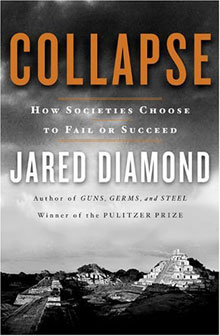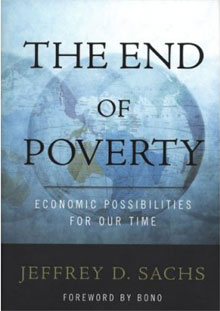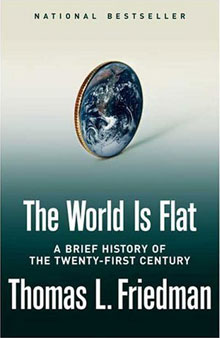Over All the Earth: A Triple Play Threat
For Sunday May 22, 2005
Lectionary Readings (Revised Common Lectionary, Year A)
Genesis 1:1–2:4
Psalm 8
2 Corinthians 13:11–13
Matthew 28:16–20
 |
The earth rises above the lunar horizon in this Apollo 8 photo. |
In humanity's first trip to and orbit around the moon, on Christmas Eve 1968 the three Apollo 8 astronauts Frank Borman, Bill Anders and Jim Lovell marked the occasion by reading ten verses of primeval poetry that is 3,000 years old, but nevertheless familiar even to the most irreligious person. In fact, they read ten verses from the lectionary for this week that begin with the first sentence of the Bible: "In the beginning God created the heavens and the earth." I was thirteen years old, and I still remember the emotional resonance of those elegant words as people around the world watched the grainy television images and listened to the crackly radio transmissions with their intermittent NASA beeps. Planet earth never looked so beautiful, so mysterious, and so very fragile.1
The Genesis creation poetry does not enlighten us about history or science as we understand those disciplines today; how could they? Even if that was their intent, their science and history would have been outmoded shortly after they wrote. Rather, the Hebrew creation story elucidates truths that transcend those disciplines and that subvert our own modern myths—like Carl Sagan's famous and grave intonation on his show Cosmos that the universe is all there ever has been, is, or ever will be; or that the universe is the random result of blind chance; or that it is a geocentric conceit of ours to construe planet earth and every human being as uniquely special in the order of things.
 |
When Christians confess the Apostles Creed, they worship God as the "maker of heaven and earth." We don't know exactly how He did this, and not even precisely when (probably about 4–5 billion years ago). The lectionary passage for this week then tells us seven times something that is easy to forget today, that what God created is thoroughly good. Christians have been so convinced of the goodness of the created order that they borrowed a technical term from the non-Christian, neo-Platonic philosopher Plotinus (204–270) to define evil as a parasite on good—a privatio boni, that is, a lack, limitation or distortion of good.
As a divinely created entity that is distinct from God, Christians believe that our earth is somehow sacred, but we do not believe that it is divine. Furthermore, we acknowledge that our earth is dependent and contingent, that it will not last forever, even if it lasts as long as astrophysicists predict (maybe another 4–5 billion years before the sun grows unbearably hot). The notion of our planet's ongoing preservation is every bit as important as its original creation. Most remarkable of all, says the Hebrew poet, when God finished his creative activity, he "rested," turned to humankind created in His very own image, and said, "here, now it is yours, to populate, steward, rule over, and manage, but not to plunder, neglect or exploit." The preservation of creation is a distinctly human responsibility that God bestowed upon us when he designated us caretakers "over all the earth."
 |
Recently I read three books, the conclusions of which constitute a clarion call for believers to care for creation, given that we believe that the planet and every person on it is a gift of God's love, a trust to tend, and the arena of God's providential purposes. The empirical observations of these three authors converge, collide, and intersect in a volatile mix that challenges our commitment as God's stewards of the earth.
In Collapse (2005), Jared Diamond studies twenty geographic case studies, large and small, ancient and modern, successes and failures. He reminds us of the obvious, that human civilizations, even some of our most advanced and venerable ones, do not last forever. The relationship between twelve environmental factors that he isolates, and how humans interacted with them, often determined whether societies collapsed or survived. Today, much of our world is on a decidedly unsustainable environmental course due to poor human choices. You can be sure that, without changes, planet earth will exact a heavy price for our choices.
Jeffrey Sachs turns his considerable skills and experiences toward the amelioration of radical economic disparity in The End of Poverty (2005). Whereas a few centuries ago virtually everyone was poor, today we have created an "unimaginable divide between the richest and poorest parts of the world." About 40% of our fellow human beings live in "poverty" (1.5 billion people) or "extreme poverty" (the 1 billion people who earn less than $1 a day). You can quibble with Sachs's proposals to rectify this situation, but grotesque, grinding poverty on this scale is unacceptable for believers who affirm that every single person bears God's image and dignity.
 |
Finally, in The World Is Flat (2005), Thomas Friedman of the New York Times documents how multiple revolutions in technology the last five years have fundamentally and permanently reshaped our entire world, "flattening" it to create a more level playing field for all, creating more wealth and more wealth of opportunity for more people than ever before. But whatever the benefits, he admits that this revolution will be a "hugely disruptive force" for everyone. Of special concern are 800 million extremely poor people in Africa, the Arab world where a minuscule 1.6% of the people are connected to the internet, and the likely consequences of an additional 3 billion nouveau riche, mainly in India and China, who will soon have the economic wherewithal to consume limited resources in the same gluttonous manner that we westerners now do (Beijing alone, for example, now adds 1,000 new cars every day to its streets).
This "triple threat" of environmental degradation, economic disparity, and e-globalization demands the wisdom and creativity of our best scientific minds, along with the clear-eyed, brave leadership of our politicians. They should provoke the special concern of Christians who confess God as the "creator of heaven and earth." One place to start is the recent Ecosystems and Human Well-Being: A Framework for Assessment (2003) by the Millennium Ecosystem Assessment, a four-year international collaboration designed to meet the needs of decision-makers for scientific information on the links between ecosystem change and human well-being. The MEA's followup General Synthesis is due out in May 2005.
Less well-known than the astronauts's reading of Genesis from lunar space is a prayer that Frank Borman subsequently offered to "people everywhere.” After completing their scientific work, he took a breath, and then prayed these tender words on behalf of God's good creation and every human being created in His image: “Give us, O God, the vision which can see thy love in the world, in spite of human failure. Give us the faith to trust the goodness in spite of our ignorance and weakness. Give us the knowledge that we may continue to pray with understanding hearts, and show us what each one of us can do to set forth the coming of the day of universal peace. Amen.
[1] The atheist Madalyn Murray O'Hair sued NASA over the Bible reading, but lost.





